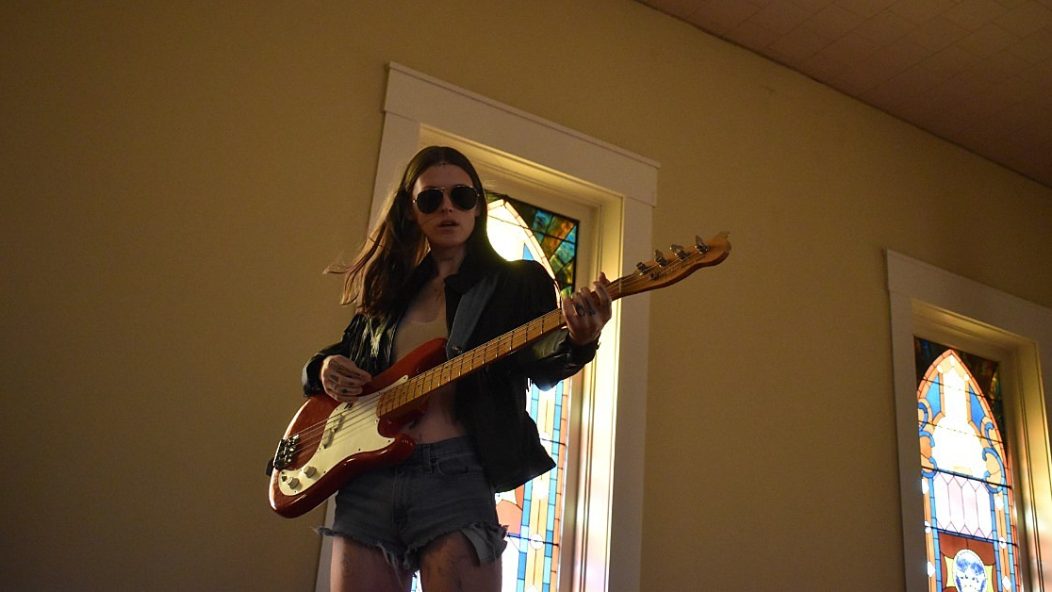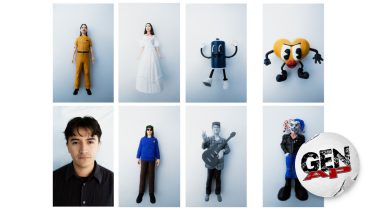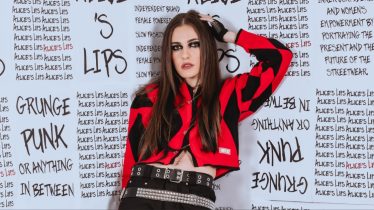
Ethel Cain’s debut album will begin an intergenerational trilogy—interview
For Hayden Silas Anhedönia, this year is built around one thing: releasing her debut album as Ethel Cain. It’s her most fully realized version of the character to date. “I’m excited to bring her to life over the course of the [new] year because my last two releases as Ethel Cain have been me,” she says. “I’ve been releasing it under that name, but they’ve been my projects. But this is all her starting [now].”
Cain’s debut album is an epic four years in the making that currently clocks in at roughly an hour-and-a-half, mixing together soul, gospel, rock, dream pop and R&B. And it’s just the beginning of the story. This album is the first in a planned trilogy about three generations of a family. Anhedönia calls it the Ethel Cain Cinematic Universe.
Read more: Ethel Cain describes her music as a dream-pop worship service
Anhedönia tends to think of her music through the lens of film, and it comes across in the creative process. This record started off as a screenplay. “I really wanted to have my own Thelma & Louise, this great American epic, that was this huge, overarching story. It was dramatic, and it had all these characters. I was like, ‘Well, if I can’t make a film, I’m gonna make an album,’” she says. She started writing music for the film she couldn’t make, and ended up with a full album. “I was like, ‘I have the whole movie, in order, through these songs.’ I put them together, and then I just became obsessed with the story,” Anhedönia explains. Eventually, she wants to make films that correspond to each of the albums, but for now, the upcoming record tells the story of Ethel Cain.
What can you tell us about the narrative of your debut album?
The story centers around three generations of women, and it starts with the youngest, the daughter. It’s pretty much just a classic American tale. A common theme that I like to write about is intergenerational trauma. Things that have been passed down through generations and how your parents’ or your grandparents’ actions can affect you. It’s very much about this lineage of women and how all their lives interconnect. Each album focuses on a different woman. I want to explore how your actions affect others and the relationship between a mother and her child and how things come full circle.
Overall, it’s definitely a cautionary tale of what happens if you don’t break a cycle and you let it continue to almost a ruinous point. It’s what I see as a dark timeline of what would happen if everything hit its lowest point. So it’s very much bittersweet [and] like a melodrama. This first record is about this girl who is dealing with things from her past that her family has led her to being involved in and her trying to find a place in the world and break out of it. It’s going to be a big epic centered around her.
What kinds of planning do you do when you’re making these records?
I’ll get a general idea, and then I’ll start to relay it out loud to myself. That helps me hear kinks in the story or things that don’t quite make sense and to verbalize it. I’ll write it down and get a rough idea and then run it by a friend of mine. I’m also super neurotic about stuff — I actually just made a family tree for all the characters yesterday. I was plotting out the timelines and making sure all the ages matched up and everything. Before I started making music, I wanted to write books and make films and tell stories. So I wanted to incorporate that into the music.
What parts of the process do you feel like you spend the most time on or tend to get sucked into the most?
Usually the bridges between stuff. I always have ideas. I’m like, “Oh, I want a big scene like this to happen. I want a big fight to happen. Or I want a really dramatic low point or a high point.” I find the core, the most action-y scenes of a story, the big, high ends. Finding how everything pieces together and how to relate them to each other and make them flow is probably the hardest part. It’s the most tedious work.
It’s finding the details that make it all go together and then [making] sure everything matches and flows without contradicting each other, having plot holes, typical stuff that you would find whenever you’re writing. I would say that’s probably what I spend the most time on because I can come up with “I want a gunfight to happen” or something, but then it’s like, “OK, well, how does that relate to what just happened and what’s about to happen? How do you just shove that in there?” It’s been interesting. I’ve never written a story this big or expansive before.
In your work, and in your interviews too, you talk a lot about poverty and working-class experiences. This is a conversation that we’re just not having in music right now. For some reason, it’s been ignored.
I feel like rock and country music and all that used to be about the struggles of lower-class people in America, the working class, which makes up the majority of America. [I] feel like everything’s gotten really corporate, and a lot of those genres have been taken over. I feel like these genres have been really inspiring to me. Gospel, blues, soul, rock — they used to be dominated by minorities. Black people invented all these genres. All these genres came from people who were using these genres to express their struggles, and now [they’ve] been taken over.
I really want to see those genres pivot back to their original roots of struggling working-class people, trying to make it in this world and chase the American Dream, which [is] kind of a facade. I feel really strongly about that, growing up in it and seeing it, being surrounded by it — I think it’s underrepresented. Everybody has this glitz and glam obsession, which is fun. I think there’s other stories to be told as well. And I think there’s a lot of people who are feeling underrepresented right now because I think a lot of entertainment is about money, and a lot of people don’t have that.
This interview first appeared in issue #402 (22 for ’22), available here.










